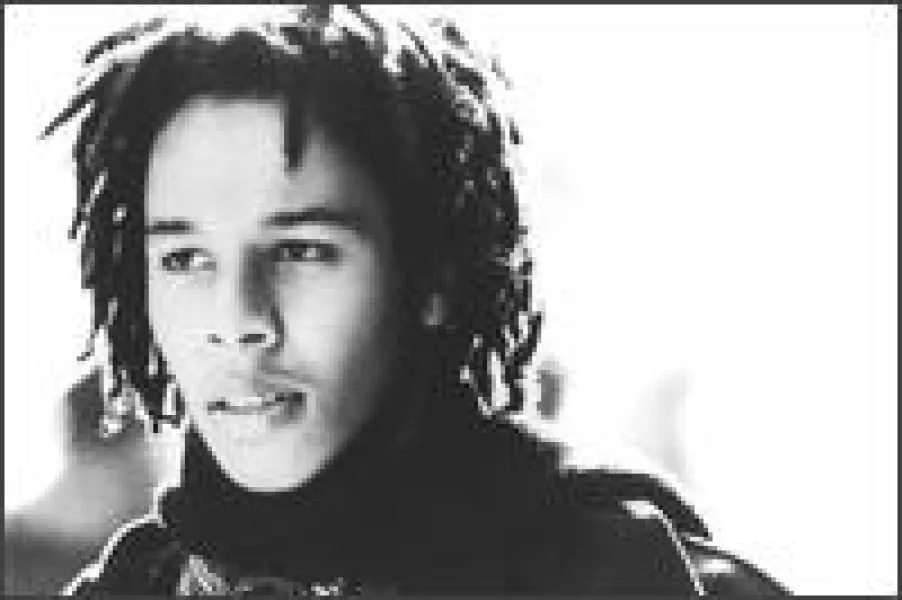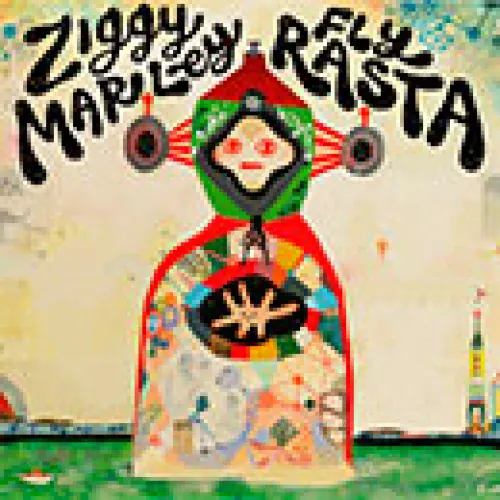
Ziggy Marley
Top Ziggy Marley albums
Top Ziggy Marley lyrics
Ziggy Marley biography
The oldest son of reggae legend Bob Marley and his wife Rita, Ziggy Marley was the natural heir to the throne left vacant by his father's untimely 1981 d**h; along with backing band the Melody Makers, a unit comprised of his brothers and sisters, he successfully carried on the tradition of communicating the music's message to a growing global audience, in the process even scoring a U.S. Top 40 single -- a claim neither of his parents could make. Born David Marley in Kingston, Jamaica on October 17, 1968, he received guitar and drum lessons from his father, and began sitting in on Wailers recording sessions at the age of ten. In 1979, Ziggy, his sister Cedelia, brother Stephen and half-sister Sharon all joined Bob in the studio to record the single "Children Playing in the Streets"; christened the Melody Makers, the four siblings continued playing together at family events, and even performed at their father's state funeral.br /br /Marley was not even 17 when he and the Melody Makers issued their EMI debut LP, Play the Game Right; the burdens of becoming a second-generation star weighed heavily on the youth -- who looked and sounded almost eerily like his father -- and he allowed the record and its 1986 follow-up Hey World! to veer closely towards pop music, resulting in derision from reggae purists. Poor sales, combined with EMI's public desire to market Marley as a solo act, prompted the band to jump to the Virgin label, where they entered the studio to record their masterpiece, 1988's Conscious Party. Produced by Talking Heads' Chris Frantz and Tina Weymouth, the album was both a critical and commercial smash, with the single "Tomorrow People" reaching number 39 on the pop charts. The follow-up, 1989's One Bright Day, continued the Melody Makers' artistic growth; it was also their best-selling effort to date, cracking the Top 20 and like its predecessor winning a Grammy.br /br /Marley and the Melody Makers resurfaced in 1991 with Jahmeyka, another a**ured and creative effort; it sold well, edging into the Top 20, but failed to generate much radio or video airplay. 1993's Joy and Blues barely charted, despite adding elements of contemporary dancehall (a showcase for Stephen's rapping sk**s.) The record was the Melody Makers' last for Virgin, and they moved to Elektra for 1995's Free Like We Want 2 B; Fallen Is Babylon followed in 1997, and scored a third Grammy. Like his father, Marley emerged as a leading political voice, and was named a Goodwill Youth Amba**ador for the United Nations; at home in Kingston, he also founded his own record label, Ghetto Youth United, created to spotlight the next generation of reggae talent. In addition to the four siblings in the Melody Makers, three other Marley children -- Damian, Julian and Ky-Mani -- also pursued careers in music. The music continued well into the new millennium, for Marley released Ziggy Marley & the Melody Makers Live, Vol. 1 in fall 2000. ~ Jason Ankeny, All Music Guide

